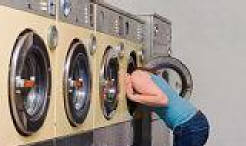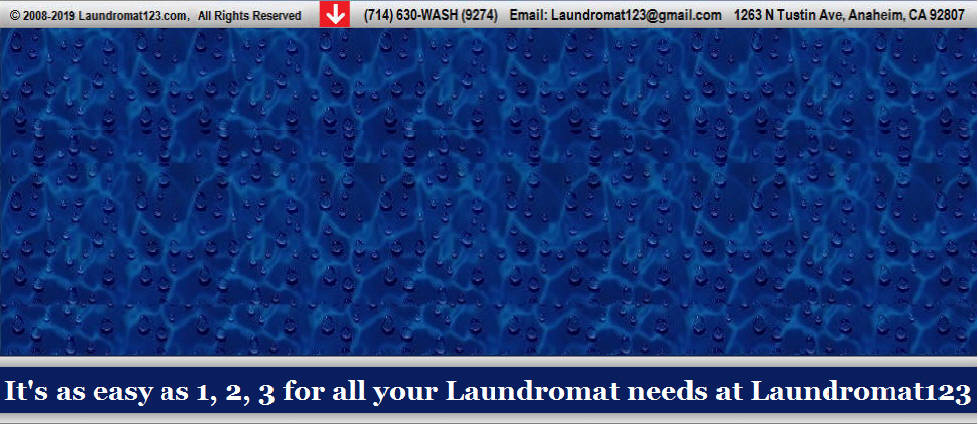Why is the evaluation process so important for potential Buyers?
The chance to catch mistakes is before you own the business. Most people searching for a Laundromat assume all Sellers have their same goals. It is important to know that every owner is not attempting to just earn income. Fundamental to any business valuation is the awareness that the current owner may value items that are unrelated to your objectives and concepts of value. Numerous reasons exist for owning a Laundromat including the following:
-High cash flow with minimum exertion
-A desire to own a business
-
Estate planning
-
Asset diversification
-
Buying a job for their adult children
-
Buying a job for their retired parents
-
Business location as it relates to current home of the buyer
-
Built to sell for a profit or remodeled to sell for a profit
-
Landlord who wants to fill vacant rental space
-
Retirement planning
-
Tax benefits
-
Pride of ownership
-
Part time vocation
-
Appreciation of the Laundromat business
-
Appreciation of the real estate when available for purchase
-
Creation of a justification of lifestyle that exceeds reported income
-
Benefits of an all-cash business.
What makes an existing laundry attractive?
Existing Laundromat locations are most appealing to those Buyers who feel uncomfortable basing an investment on income projections prepared for a new Laundromat. In an existing Laundromat, the Buyer can get a relative feel for the income and expenses through a review of the prior income history. If available, three years of records kept by the Seller should be reviewed.
Take me through the evaluation process. What key areas must be researched... demographics, store condition, etc.?
The due diligence process should include:
-
An experienced professional to assist in the evaluation process.
-
An evaluation of the lease. A bad lease causes more problems than any other factor in the ownership of Laundromats.
-
The roof and the sealant around the venting should be inspected as to its condition.
-
The ceiling tile should be viewed for stains from water leaks, especially near the air coolers.
-
Inspection of the equipment should be done including the collection of serial numbers.
-
Serial numbers should be used to verify equipment production dates by contacting the manufacturers.
-
An experienced repairman could inspect the equipment.
-
A professional inspection service should be used to verify code compliance, mold issues and ADA compliance of the site.
-
The floor should be inspected to ensure that the concrete is not lifting/sinking and the tile is not cracked, broken or worn.
-
The surrounding neighborhood (up to one mile) should be searched for other Laundromats. Laundromats are routinely built and others go out of business in most urban neighborhoods.
-
Nearby apartment laundry rooms should be visited noting vended prices and conditions.
-
The local city building department should be visited to view their file on permits, certificates of occupancy, age, construction information and any potential developments.
-
The building department staff should know if any new Laundromats are in the planning phase.
-Check to make sure all electrical items,
including televisions are working.
-
Inspect the neighborhood around the site to
find any available empty commercial space suitable
for the construction of a Laundromat.
-
Call the broker listed on the for lease sign to
compare current rental rates and information on
upcoming competition.
-
Ask the local police department for input on crime
in the neighborhood.
-
Three years worth of income and expenses should be
obtained from the Seller.
-
Demographic study is advisable.
How do you decide what to pay for a laundry? What are the keys to that process?
What is paid for a Laundromat will vary from location to location. Some Buyers like to use a multiple to set a price. In Southern California the multiple has ranged from 40 to 70 times the monthly net income. Purchasing strictly on a formula should be avoided. If you have properly addressed your costs and your income, the price you pay should primarily be based on the lease and the income. Secondary considerations include current income, population density, apartment house washer/dryer pricing, potential competition, length of remaining lease term, age of equipment, appearance, location potential, and pride of ownership.
In doing their due diligence, what can be a costly mistake?
A common error that new Buyers make is failing to properly read their lease. Ensure you understand your
option
rights. Those provided at at "market rate" pass power to the Landlord. The best options are at "the same terms and conditions as the original lease."
What questions should potential Buyers ask as they do their research?
Why is someone selling their business? What did the current owner pay when he bought it? Will the owner carry a loan for part of the purchase price? How long will the current owner agree to train me?
When will I need to retain an attorney to review my purchase?
I advise potential buyers to consider an attorney to review any legal paperwork they don't understand. However, it is important to understand the knowledge of most attorneys about Laundromats and even lease provisions that favor Laundromat owners might be hard to find. Attorneys specialize in areas of expertise so a general business attorney may not have specific information about our business. Ask how many Laundromats have been handled by the lawyer you're talking to about advising you on your purchase.
Here's my advice, identify issues you don't understand after you've done a complete due diligence evaluation on your own (with the help of your consultant or broker if available.) Don't request that attorneys advise in business areas in which they are not trained. A tax issue that is confusing should be discussed with a CPA or tax preparer. Contracts and confusing lease provisions are the proper area in which Laundromat owners can benefit from attorneys.
On the other hand, I've seen attorneys try to get involved in the price and viability of a purchase and end up talking a buyer out of a great location and purchase price. Have your attorney "stay in his lane" and rely on him for legal issues and not investment advice. You should have researched the Laundromat business before you decide to make an offer to purchase one. Rely first on yourself, then your Laundromat consultant and finally property inspectors, tax specialists, ADA inspectors and attorneys as needed.
Inserted: 3/24/23
What are the most common mistakes potential Buyers make during this evaluation process?
-Failure to meet the Landlord. If you are entering into a long term relationship with a Landlord it would be prudent to meet and assess his manner. You can avoid discovering that your Landlord is "unreasonable" if you meet before you've signed the lease.
-
Failure to meet the Seller. Discover why he is selling a profitable business, particularly in this depressed market. Ensure that all the paperwork provided to you by the sales agent matches what the current owner is telling you. You'll discover that most owners are very honest and interested in your success.
-
Failure to meet the other tenants in the shopping center. If you're buying a Laundromat meet the neighbors before you sign on the dotted line. Parking problems, Landlord problems and so much more can be verified by the neighbors. The best way to introduce yourself is to tell the person in the store you're thinking of buying the Laundromat next door. Avoid asking for the owner, as this can make the actual owner defensive.
What's the best advice you would give a Buyer?
Learn from various sources, including books, the web (such as this site)
and professional advisors. You're investing your money, so never get so excited to buy that you fail to read each and every document. The old adage is "Buy in haste and repent in leisure."


INVESTMENT EVALUATION & DUE DILIGENCE




